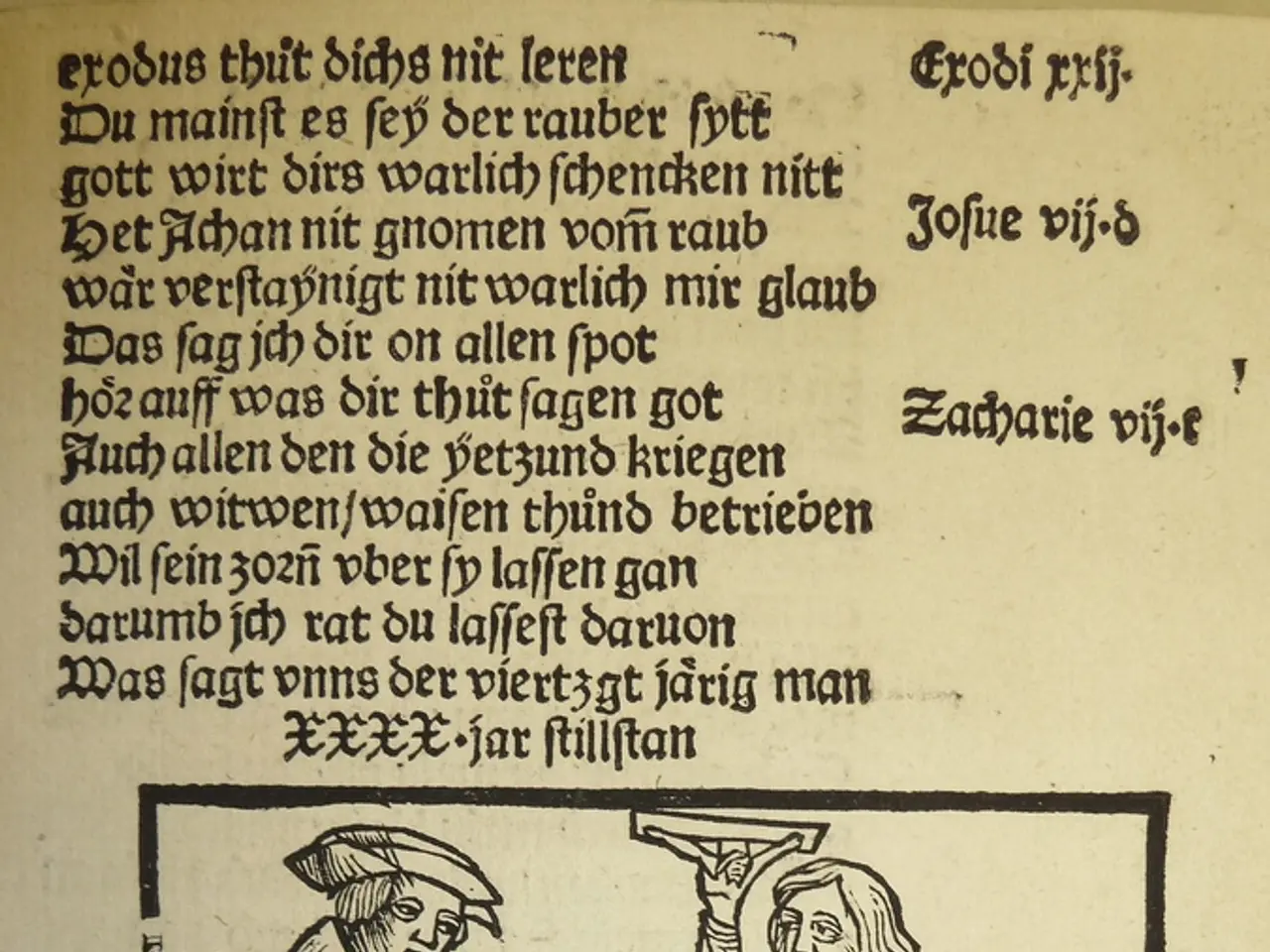Danish Open-Faced Sandwiches Lead to Skagen Painters: The Combined Phrases Embodying Denmark
In the heart of Scandinavia, Denmark boasts a unique language that is rich in compound words, each one a testament to the nation's culture, history, and everyday life. This linguistic quirk is not only significant linguistically but also culturally, as it allows the formation of precise and nuanced terms that mirror Danish society, work, family structure, design, and history.
One of the most intriguing aspects of Danish compound words is their ability to encapsulate specific Danish experiences and traditions in a single word. For instance, the term kagekone (cake-woman) can refer to a woman involved with cake baking or selling, showcasing social roles tied to food. Similarly, husmandskone (smallholder's wife) describes the wife of a small-scale farmer, reflecting traditional rural housing and social structure.
The Danish language also uses compound words to create new meanings in other areas. In education, terms like skolelærer (school teacher) are common. In the realm of family, compounds such as bondekone (farmer's wife), fiskerkone (fisherman's wife), and husmandskone (smallholder's wife) highlight the social roles of women within family and occupational contexts. Work-related compounds like vaskekone (washing woman; laundress) and kogekone (cooking woman; cook) reflect specific work roles traditionally associated with women.
Leisure activities in Denmark often have compound words associated with them, such as friluftsliv (open-air life/outdoor life). The Danish design tradition is also reflected in compound words, with examples like møbelhus (furniture house/store). Historical terms often combine words to specify historical objects or roles, such as spåkone (fortune teller woman).
Living in Denmark, most people reside in either lejebolig (rented housing) or ejerbolig (privately owned housing). During the festive season, Danes produce juleøl (Christmas beers) and celebrate with julefrokost (Christmas lunch) parties, which are actually schnapps-fueled evening meals with set courses. In the summer, people might stay at a sommerhus (summer house), go on an udlandsrejse (foreign travel), or stay at a badehotel (traditional, upmarket seaside hotel).
The Danish education system includes the folkeskole (people's school) and højskole (folk high school) for further education. Upon passing upper secondary school, students receive a studentereksamen, a certificate giving them access to university. During the summer holidays, known as sommerferie, children and adults alike enjoy a guaranteed three weeks off work.
Historic town centres often feature brosten (cobblestones) and baggård (back yards). School graduates celebrate their achievements with a studenterkørsel, a trip around town on a specially-converted bus, and wear a studenterhue (student's cap) as a memento of their achievement.
Traditional Danish dishes include rugbrødsmad (rye bread meal), smørrebrød (open-topped sandwich), leverpostej (liver pate), flæskesteg (roast pork), and pålægschokolade ('topping chocolate'). The standard arbejdsuge (working week) in Denmark is 37 hours, often including an early finish on Friday afternoons. Workers might spend time with their families after work, have a fyraftensøl ('clocking-off beer'), or attend a fredagsbar ('Friday bar').
An andelsforening is a cooperative housing association in Denmark, where residents own the deeds to the property and its intrinsic value but not the bricks and mortar. Workers also have the right to take time off at the same time as the school holidays.
The Danish language's prolific use of compounds enriches it by providing concise, descriptive terms deeply linked to cultural identity and everyday life. This linguistic feature is a testament to Denmark's unique cultural heritage and contributes to the nation's distinct identity within the global community.
- Exploring Denmark, one can encounter various facets of its culture through its compound words, such as the traditional role of a woman involved in cake baking or selling, known as a 'kagekone'.
- In the realm of work, Danish compound words reflect specific roles traditionally associated with women, like a 'vaskekone', a laundress, or a 'kogekone', a cook.
- Leisure activities in Denmark often have compound words associated with them, like 'friluftsliv', which stands for open-air life or outdoor life.
- The Danish education system includes terms like 'højskole', a folk high school, and 'folkeskole', a people's school, while students receive a 'studentereksamen' upon passing upper secondary school.




